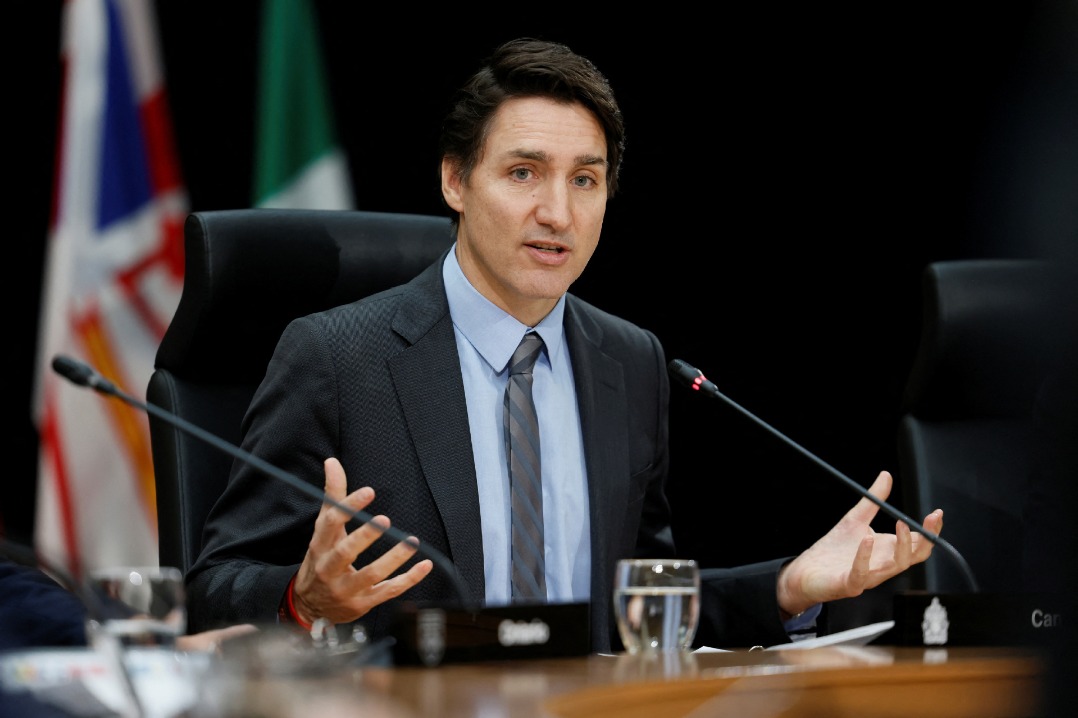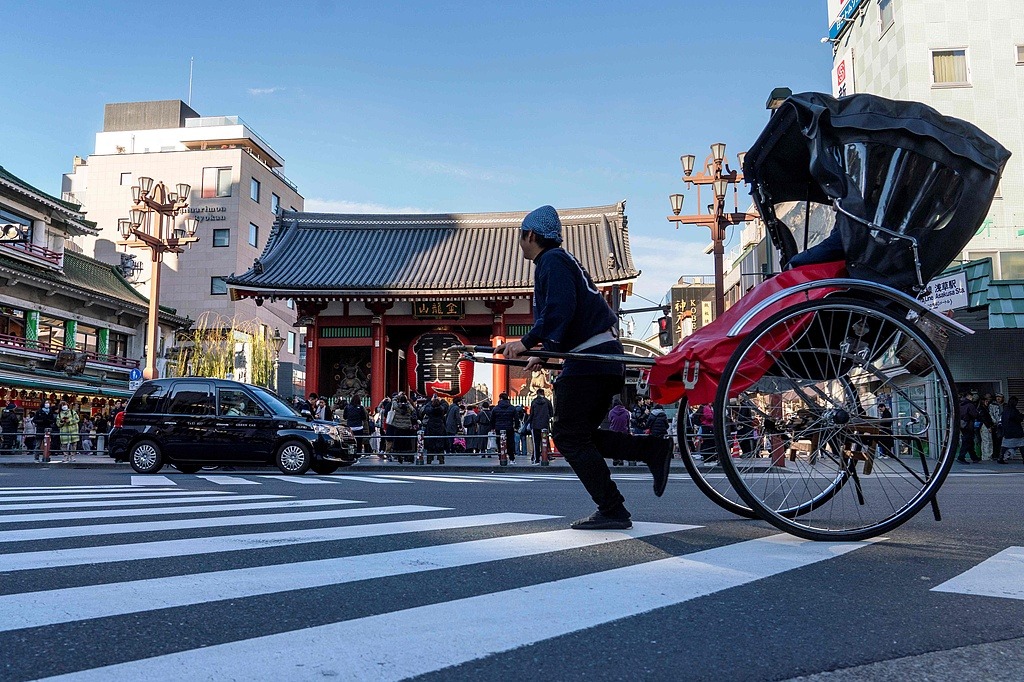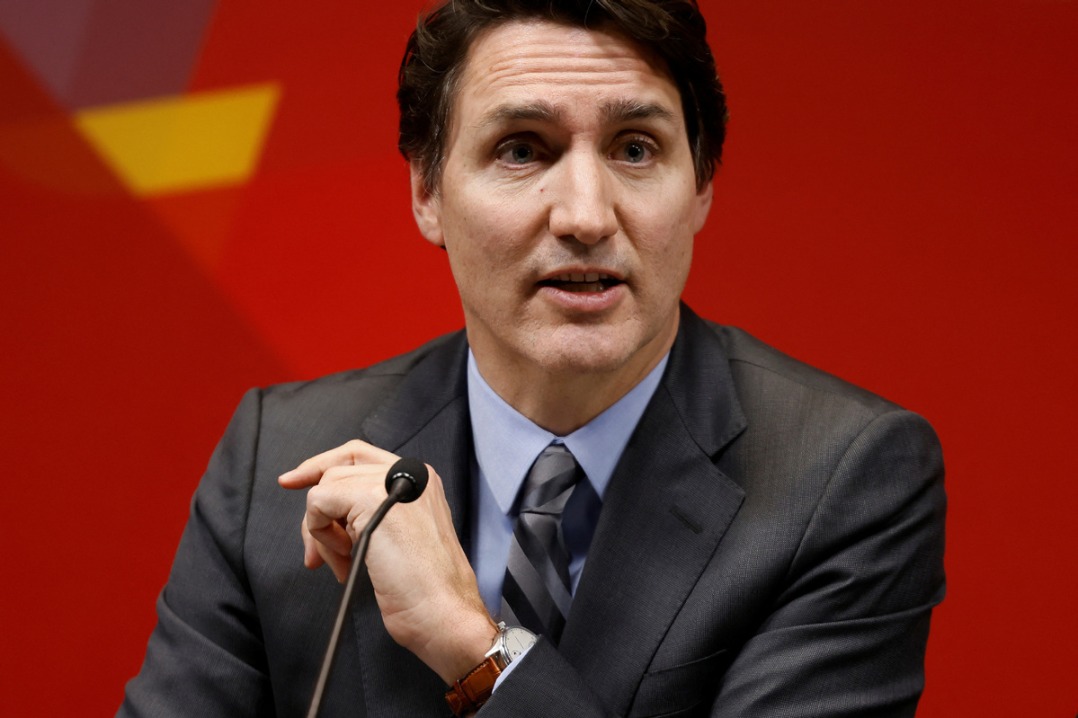Virus 'storm' far from over, says WHO


The World Health Organization warned on Sunday the COVID-19 pandemic is continuing, despite the decisions of many nations to lift their restrictions aimed at stopping its spread.
More than 6 million deaths from COVID-19 have been reported to the WHO, but the organization's latest estimates show that the actual number of fatalities is much higher, at almost 15 million.
Speaking at the opening of the 75th World Health Assembly in Geneva, Switzerland, WHO Director-General Tedros Adhanom Ghebreyesus said reported COVID-19 cases have declined significantly from the peak of the wave of the Omicron variant of the virus in January. And reported deaths are at their lowest since March 2020.
"In many countries, all restrictions have been lifted, and life looks much like it did before the pandemic," he told participants from 194 countries attending the first in-person assembly since the start of the pandemic in 2019. "So it is over? No, it's most certainly not over."
While 60 percent of the world's population is vaccinated, Tedros reiterated that "it's not over anywhere until it's over everywhere".
According to the WHO, reported COVID-19 cases are increasing in almost 70 countries in all regions at a time when testing rates have plummeted, and reported deaths are rising in many continents, especially continents with the lowest vaccination coverage.
"The virus has surprised us at every turn, a storm that has torn through communities again and again, and we still can't predict its path, or its intensity," Tedros said. "We lower our guard at our peril."
He warned that increasing transmission rates mean more deaths, especially among the unvaccinated, and more risk of a new variant emerging.
And he noted that almost 1 billion people in lower-income countries remain unvaccinated while 57 countries have vaccinated 70 percent of their populations, almost all of those countries being high-income places.
"We must continue to support all countries to reach 70 percent vaccination coverage as soon as possible, including 100 percent of those aged over 60, 100 percent of health workers, and 100 percent of those with underlying conditions," said Tedros, who is set to start his second five-year term as head of the global health body.
The theme for this year's assembly, which ends on May 28, is "Health for peace, peace for health".
UN Secretary General Antonio Guterres said the assembly is being held at a time in which global health is being challenged by climate change, pollution, conflicts, deepening poverty, and inequality, and with the problems stretching underfunded health systems.
"The pandemic is a staggering reminder of the deep connection between human health and health of the whole world, and a moral test that humanity is tragically failing because of inequitable access to vaccines and funding," he said.
Guterres praised the WHO for its hard work in leading the fight against the pandemic. And he urged countries to support the WHO by increasing investment, a top issue set to be discussed at this year's assembly, which is WHO's highest-level decision-making body.
"There is no greater return on investment than health; for people, for economies and jobs, for peace and security, for our planet," he said.
Kenya's President Uhuru Kenyatta, who attended the assembly in person, said the pandemic has revealed the level of inequality across the world.
"No country or sector has been spared from the devastating impact of COVID-19," he said. "This is especially true for the developing and least developed countries, which are more vulnerable to economic shocks and disruptions to global supply systems.
"As each country plans its social and economic recovery strategy, it's important to focus our collective attention on the very real risk and impact of an uneven economic recovery and what this portends for our long-term pursuit of ending inequality among countries."
In a video message, France's President Emmanuel Macron called on the world to support WHO "relentlessly".
"WHO is the only legitimate institution to guarantee universal health security, and to enable us, collectively, to have a coordinated and united response," he said.
The impact of wars and conflicts will be another major topic at this year's assembly. Tedros on Sunday talked at length and emotionally about the destruction of wars.
"I am a child of war," he said, referring his childhood in Ethiopia. "War is bad enough. But it is made worse because it creates the conditions for disease to spread."































